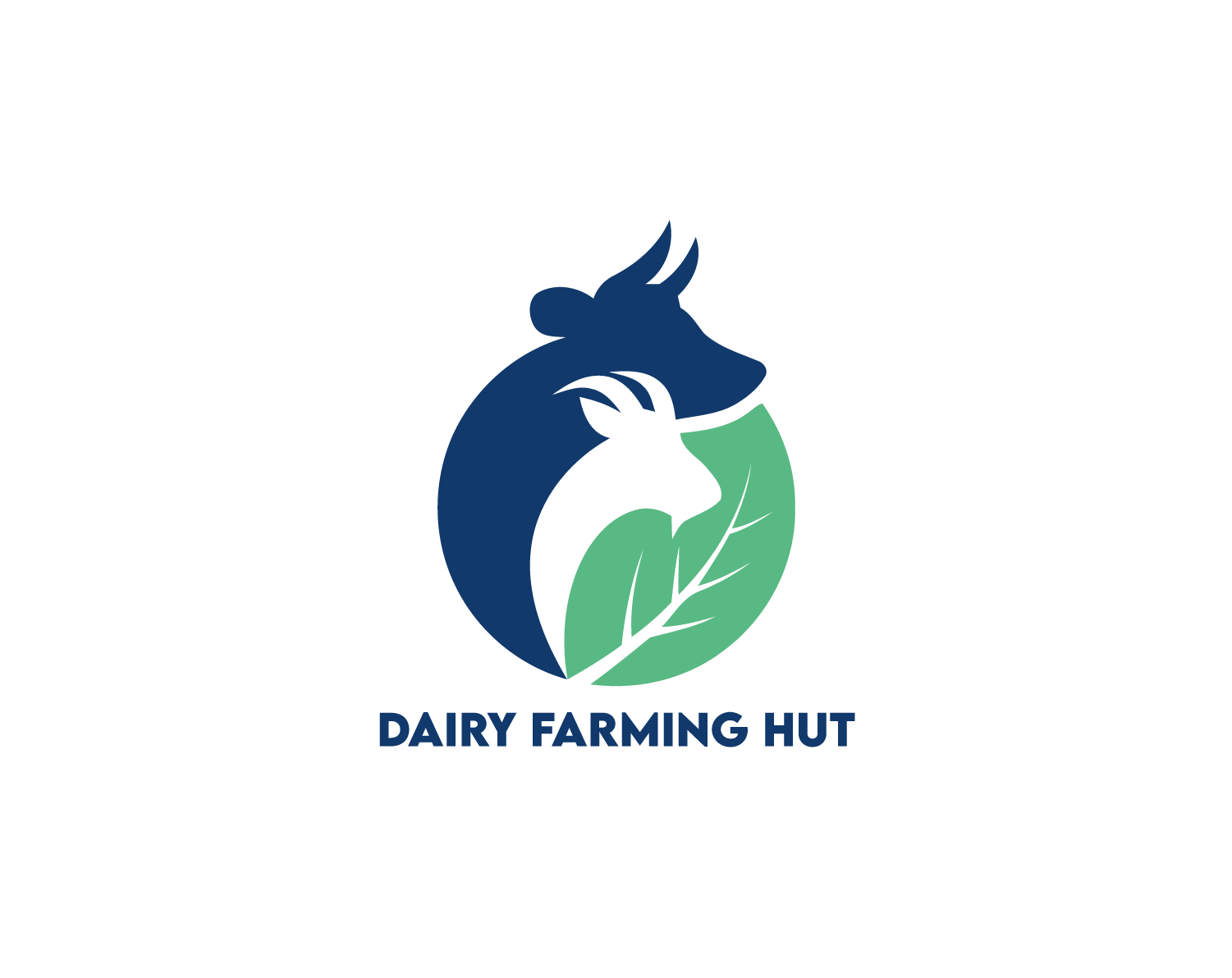Both Goats and Cows can be very profitable, but it all depends on the farmer’s expertise and how the business is marketed.
Investing in a dairy farm is an excellent idea. Even if the value of milk oscillates over time, it never completely loses its value. The choice between cows and goats is a difficult one, and you will need to consider a few key factors that can radically influence the outcome of the dairy farm.
Food will always be a good investment, and given the economic challenges that we are facing now, it is definitely safer to bet on goods that everyone needs.
Before you can compare your options, you need to know the facts about each animal, so we should look at what each of them implies.
The Cow - the Staple of a Dairy Farm
Cows have been farmed for their milk for centuries. In fact, evidence that they were domesticated and milked for their milk goes back as far as the Neolithic, 12,000 years ago.

Of course, back then, cows were milked manually, and they weren’t as intensely farmed as they are today. Back then, a cow might have sustained a small village.
Cows produce large quantities of Milk, one single animal yielding an average of 7.5 gallons per day.
However, when you think about managing a dairy farm, you must think about all the other things a cow does and needs.
Hydration and Milk Production
In order to produce high levels of milk, cows need to stay hydrated. Lack of hydration will lead to lower milk production, and the animal's health will start to degrade. When the cow is not in its top shape, the quality of the milk will not be the same.
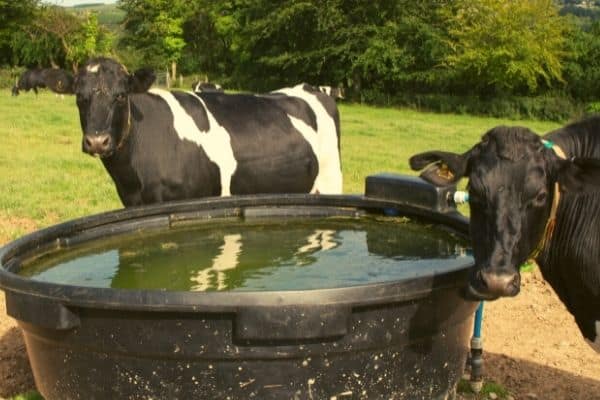
Cows are also prone to dehydration due to the fact that they are milked in an industrial setting, which pushes their body to produce more milk, so it is vital to ensure that they constantly have access to clean water.
How Much Water does a Cow Drink?
On average, a cow will drink 35 gallons of water every day. This quantity is directly influenced by a few factors like:
Cow Nutrition
Cows are big animals and a big animal needs a lot of food, especially if it’s expected to produce 7 gallons of milk every day.
One of the largest expenses a cow farmer has is food, especially in winter. The average cost to feed a cow is $1.83.
Depending on its size, race, age, and level of exercise, a cow might eat up to 120 pounds of wet feed a day or up to 55 pounds of dry feed.
What do Cows Eat?
If cows are offered a large, appropriate pasture, they will eat grass, which will meet most of their nutritional requirements.
However, the grass needs to have some very particular features for the cow to be able to eat it. To be more precise, it needs to be long enough for the cow to curl its tongue around it because that is how they eat. After curling their tongue (to hold the grass), they will bite to cut it off.
If grazing is not an option, there are a few alternatives:
The decision on the cow’s nutrition should be made by the farmer, with the help of a veterinarian that specializes in farming cows for dairy
Speaking of the veterinarian, following is another important point that involves his help.
Medical Costs Associated with Owning a Single Cow
Medical costs are high for anyone, and cows are no exception. There are many diseases that a cow can get, which would affect milk production and which could jeopardize the entire farm.
This is why you must always consult with a veterinarian and ensure that all the vaccinations are completed within schedule.
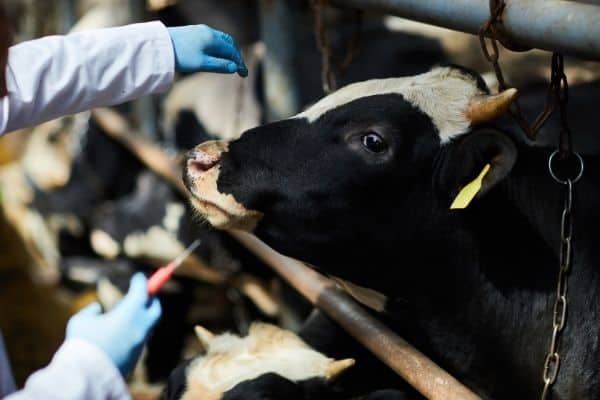
These costs are variable, and they differ according to state (some are cheaper): the particular veterinarian you choose and the number of cows you have on the farm.
Once a cow is well fed and healthy, it will produce a high-quality milk and a lot of manure.
The manure itself is another problem that farmers need to deal with.
The Bottom of the List - Manure
Sadly, when someone decides to own a dairy farm, they don’t think about the manure. When this happens, they might find themselves stuck with a lot of… let’s call it undigested grass.
The average cow daily exerts an average of 14 gallons. This refers to both urine and feces. We are talking about around 3.5 gallons of urine and 65 lbs of manure.
Depending on how inventive the farmer is and how much they are willing to invest, they could view manure as another investment.
But first things first. Before thinking about what to do with this farming byproduct, you need to check the legislation that applies to your state.

Cow manure as Fertilizer
Handling toxic waste is strictly regulated and you will have to prove that you are not just dumping it and polluting water sources.
The alternatives you have are:
There are a lot of interesting facts about cow manure. You can further read and what to do with it here.
The U.S. process a lot of milk, even if the E.U. is the world leader milk-wise, the U.S. still has more than 60,000 dairy farms.
However, according to US Farm Data, more than half of the farms have less than 25 cows.
The profit obtained from cow dairy farms varies greatly, and some of the factors are the size of the farm, the race of the cows, and the clients you can manage to the source.
Now, let’s look at the other interesting section of our article and see how a cow can compare to a goat.
The Goat - Not as Famous, but Definitely Versatile
Goats, too, have a long history alongside humans. Evidence shows that the first time the goat was a domestic animal was 10,000 years ago, somewhere in Iran.
There are many breeds of goats, and as with cows, each breed has different characteristics, both physical and in regards to the amount of milk that they yield.
Goat dairy farms have been on the rise in the US during the past few years. So much so that in just 10 years, the demand for goat milk and goat dairy products has increased by 60%.
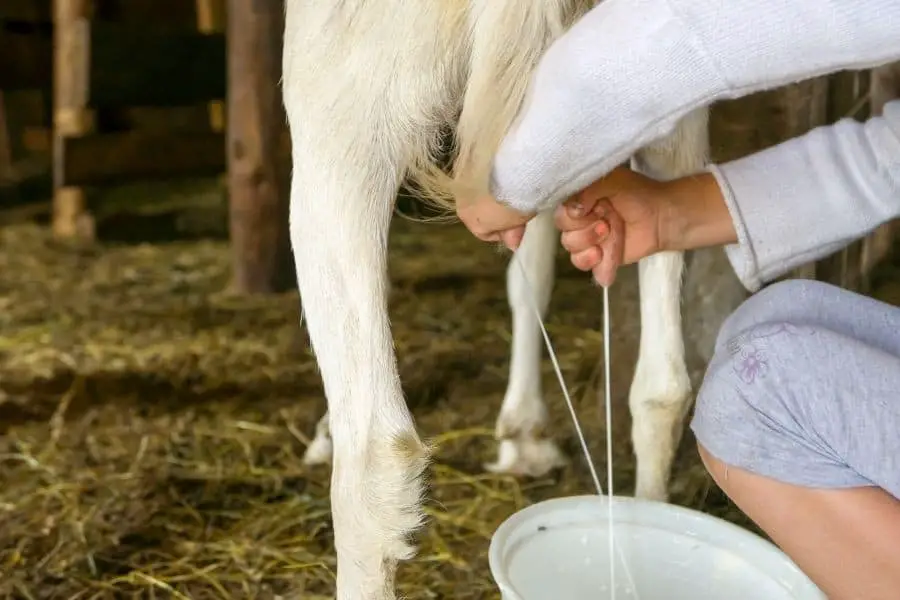
Goat Milking with hands
This could be because goats were popularized through social media and have been presented as funny, or it could be because of the proprieties of the milk.
Even if goat milk is sometimes advertised as being able to improve different conditions, there is no medical evidence to this fact.
However, some people who suffer from allergies to cow’s milk may enjoy goat milk and dairy. Since allergies have been on the rise in recent decades, especially those to cow’s milk, as you can see here, goat milk has become the to-go option for adults and children alike.
Goat’s milk has a different structure to that of the cow. The fat particles are smaller, which means that they stay in the milk instead of floating. This means that the milk needs less processing.
Furthermore, some farmers prefer to handle goats instead of cows. The reasons for this are that:
The downside of owning goats is that a goat can only give up to 2 gallons of milk a day.
Let’s look at the other important information about owning a goat dairy farm.
What do Goats Eat?
It is common knowledge that, if given a chance, a goat will eat anything. Goats are browsing animals, which means that they feed on leaves, fruit, and shrubs.
Of course, they eat only edible products, but they do chew on other objects too, just to see if they can eat them.
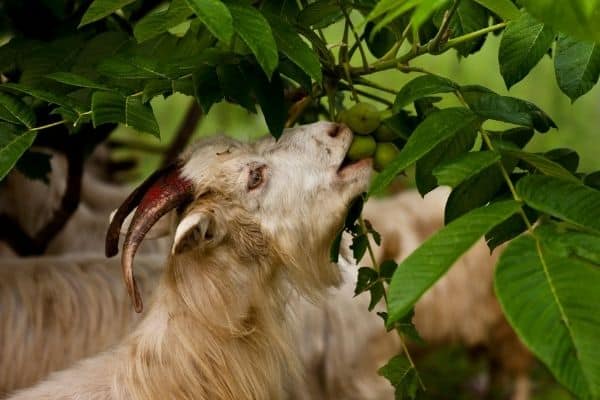
The diet of a goat doesn’t differ much from that of a cow, but the quantity is definitely much lower.
Goats eat a bit differently from cows, as they prefer weeds and bushes, so rather than allowing them to roam on pastures, they are better used to manage that pasture, as they will eat what cows won’t.
When they aren’t browsing they are fed:
Goats need between 2 to 4 pounds of hay a day, or 2 pounds of Chaffhaye for every 100 pounds the goat has. This amounts to $0.65 a day.
As for cows, a goat’s diet should be discussed with a veterinarian because, without proper nutrients, the animal might become sick, or it may yield less milk.
check out
Our Buyers Guides
Our top picks for your Dairy Farming Needs
How Much Water does a Goat Drink?
A goat needs between 2-3 gallons of water each day. Of course, if it is grazing, it will need less. And this amount can vary with the amount of milk it produces and the ambient temperature and humidity level.
Medical Costs Associated with Dairy Farm Goats
We already agreed that veterinarians are expensive, so you know that you must have a contract with a veterinarian no matter the type of dairy farm you will run.
In general, goats don’t need much medical attention, as they are resilient and have evolved to have a good immune system.
However, it’s important to note that goats have some particular needs. They are exposed to more parasites, which means that they will need to be dewormed with special products and have additional vaccinations like the one for “acute death syndrome.”
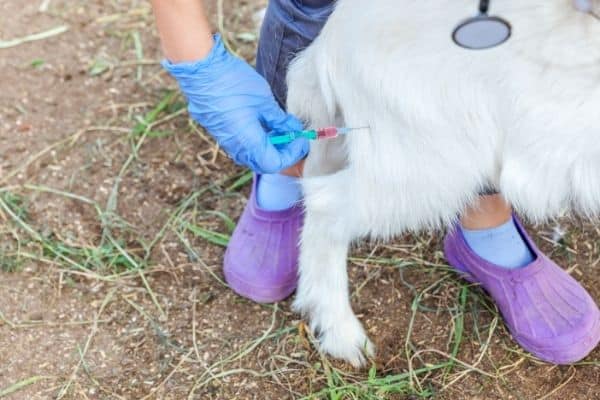
Goat Getting vaccine dose
More information about health for dairy goats comes from the University of Arkansas, and you can read more about it here.
Manure - Yes, Goats do it Too
Good news from the manure front. After reading about the amount a cow produces, you probably have a different perspective, but goats are much more gentle on the farmers, and they do part of the job for them.
A goat produces under a pound of manure a day, and goat manure is much more pelleted, making it easier to collect and store.
Furthermore, because it is not as rich in bacteria as the cow’s manure, it rarely attracts insects, and it is much easier to compost.
You can manage a goat’s manure the same way that you would do with a cow, but it will be easier to handle, and you may find more contracts for goat’s manure compost because gardeners aren’t particularly fond of insects.
After learning so much about both these animals, it’s time to answer your question and talk about profit and what to choose.
Goats vs. Cows: Which is More Profitable for a Dairy Farm?
Your choice should come down to what you can put on the table.
Cow’s milk is cheap, but cows produce a lot of it. To obtain a decent profit, you will need more cows which means more space and more workforce.
For the cow’s milk to have more value, you should have pastures so they can graze freely. This will give you high-quality milk that sells for more money than the classic one.
Ideally, your pastures should be green more than 6 months a year because otherwise, your cows will be eating hay, which does not result in the same valuable milk.
Marketing cow’s milk might be difficult too. There are many players on the market, and most of them have signed with large traders.
This doesn’t mean that it’s impossible to establish yourself on the cow’s milk market. It just means that it requires hard work and a big investment in marketing strategies that work.
In contrast, goats seem like they are much easier to manage, but they produce less milk. With just a fraction of the milk a cow produces, how could you make any profit?
The trick with goats is that you need to go into marketing your business even before buying a single goat.
There is a high demand for goat dairy, and there are many ways through which you can monetize it. The milk a goat produces in a single day can be equal in value to the milk a cow produces in a single day.
If the goat is farmed in an organic farm, its value can go even higher. The overall cost of raising goats is definitely lower than raising cows, and it’s easier to start a business, especially if it will be a small one.
However, goat dairy farms are a relatively new territory in the U.S., and no matter what the numbers say, there is no telling what will happen in the future. So, from this perspective, there is a risk, and you will have to consider it.
Farming is one thing that gives you an absolute feeling of accomplishment because being able to feed people feels good. Of course, becoming financially stable in the long term feels even better, and dairy farms can do that, especially if you attract investors and expand your business.
This is not an Investment Advice
The Ideas and Strategies presented on this website and the information are based on our research and experience. These strategies are not intended to be a source of financial or business advice concerning the material presented. The information and/or documents contained on this website do not constitute investment advice. Any business idea or investment plan with financial risk should never be used without first assessing your own personal and financial situation or consulting a financial professional.
